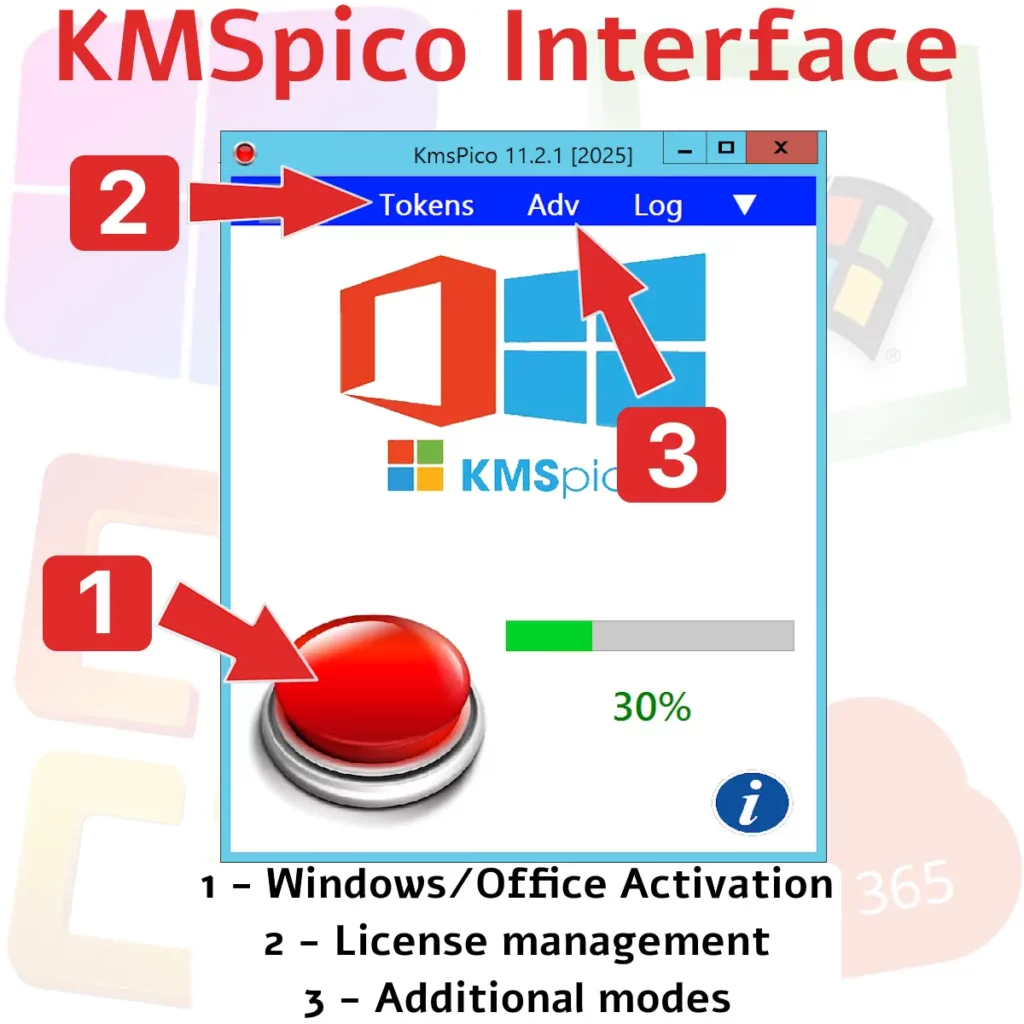
In the rapidly evolving digital landscape, the quest for software freedom often leads users to explore unconventional routes. One such path is the use of tools like KMSpico, which promise free activation of popular software. However, this practice raises both ethical and security concerns. The discussion around using a KMSpico password highlights the delicate balance between accessing software without financial barriers and maintaining ethical cybersecurity practices.
The Appeal of KMSpico Passwords
For many users, the allure of KMSpico passwords and similar tools lies in their promise to bypass costly licenses. Products like the KMS Windows Activator and Office Activator offer seemingly simple solutions to access full software capabilities without financial outlay. This appeal is particularly strong for those who frequently need applications like Windows 10 Pro or Office 2019 but cannot afford recurring costs.
Understanding KMS Technology
KMS, or Key Management Service, is a legitimate Microsoft technology designed to aid large organizations in activating multiple computers at once. However, when repurposed by unauthorized activators such as KMSpico, it can become a tool for piracy. The misuse of KMS technology through cracked versions, including using a KMSpico password, places users in a gray area regarding legality and ethics.
The Risks of Unauthorized Activation
Utilizing a KMSpico password for unauthorized activation can expose users to significant risks. These risks include potential malware infections from downloading unofficial software cracks and the possibility of compromising system integrity. The KMSpico official stance is clear—software piracy undermines not only developers’ rights but also user safety.
Security Implications
Downloading activation tools from unofficial sources can lead to severe security implications. Often bundled with malware, these tools can compromise sensitive data and system functionality. A study found that over 50% of systems compromised through pirated software faced critical malware threats.
Ethical Considerations
While the financial savings are tempting, using kmspico passwords goes against ethical cyber practices. This approach challenges the efforts of software developers who rely on license sales to fund updates and support services. Accessing premium software features without a valid product key constitutes piracy, which has broader implications for the software industry at large.
The Appeal Versus Reality: A Closer Look
The practical benefits promised by a kms windows activator are often overshadowed by its drawbacks. Users must weigh short-term gains against long-term consequences such as system vulnerability and exposure to legal actions.
Technical Requirements and Limitations
Running unauthorized activators may require specific technical settings—often including knowledge of VM setups or network configurations—to avoid detection by security systems. For instance, an environment with at least VM 2 vCPU / 4 GB RAM is commonly needed to safely test these tools without affecting live systems.
Alternatives for Software Activation
Instead of relying on a kmspico password or other cracks, users should explore legitimate alternatives like subscription models or educational discounts offered by official channels. These options provide legal pathways to access necessary software while supporting ethical standards.
- Official Purchase: Acquiring software through authorized vendors ensures compliance with licensing agreements.
- Subscription Services: Many companies offer affordable subscription models tailored to different user needs.
- Educational Discounts: Students and educators can often access discounted rates directly from the kmspico official website or related platforms.
Navigating Legal Implications
Using unauthorized activation methods like kmspico passwords poses not only technical risks but also legal ones. Users engaging in such practices may face penalties ranging from fines to criminal charges, especially when high-value corporate environments are involved.
The Role of Corporate Policies
Organizations must enforce strict policies against using pirated software within their networks. This includes regular audits and leveraging tools like DISM (Deployment Image Service Management) to ensure compliance with legal mandates.
Personal Use vs. Corporate Use
While personal use might seem inconsequential, corporate environments face stricter scrutiny regarding software legality. Companies failing to adhere to licensing agreements risk substantial financial penalties and reputational damage.
A Path Toward Ethical Software Use
The debate over using a kmspico password reflects broader challenges in the digital age where accessibility collides with ethical standards. By understanding both the benefits and risks associated with unauthorized activators, users can make informed decisions that align with ethical cyber practices while also supporting sustainable development in the software industry.
Cultivating Awareness and Responsibility
A concerted effort toward educating users about the dangers and ethical implications of pirated software usage can shift behavior toward more responsible habits. Initiatives that promote transparency about licensing costs versus potential security threats are crucial in fostering an informed user base that prioritizes legal compliance over temporary gains.
The path forward requires balancing immediate desires for accessible applications against long-term commitments to ethical practices that consider developer rights, security integrity, and personal responsibility in cyberspace.
KMSPico Password: Balancing Ethics and Accessibility
The ongoing evolution in technology brings forth complex issues surrounding access to digital tools, exemplified by discussions around kmspico passwords. Individuals seeking cost-effective solutions must navigate an intricate landscape where affordability meets accountability. While some may argue their actions stem from necessity rather than choice due to financial constraints or limited access options elsewhere; others emphasize upholding principles even when faced with adversity—understanding how each decision impacts not only themselves but also broader communities dependent upon fair compensation models sustaining creativity within industries worldwide today more than ever before!
Piracy’s Impact on Innovation
The rampant use of unauthorized activators threatens innovation across multiple sectors reliant upon intellectual property rights protection—a cornerstone ensuring continued advancements benefiting society collectively rather than just select few individuals seeking shortcuts circumventing established norms governing fair usage policies globally recognized industry standards alike! When developers lose revenue streams vital funding research development endeavors ultimately stifling creative potential future technological breakthroughs jeopardizing progress made thus far jeopardizing future possibilities altogether potentially leading stagnation regression instead continued growth prosperity shared amongst diverse populations worldwide striving achieve common goals collaboratively united purpose-driven visionaries dedicated advancing humanity forward always remaining mindful interconnectedness inherent modern existence itself!


